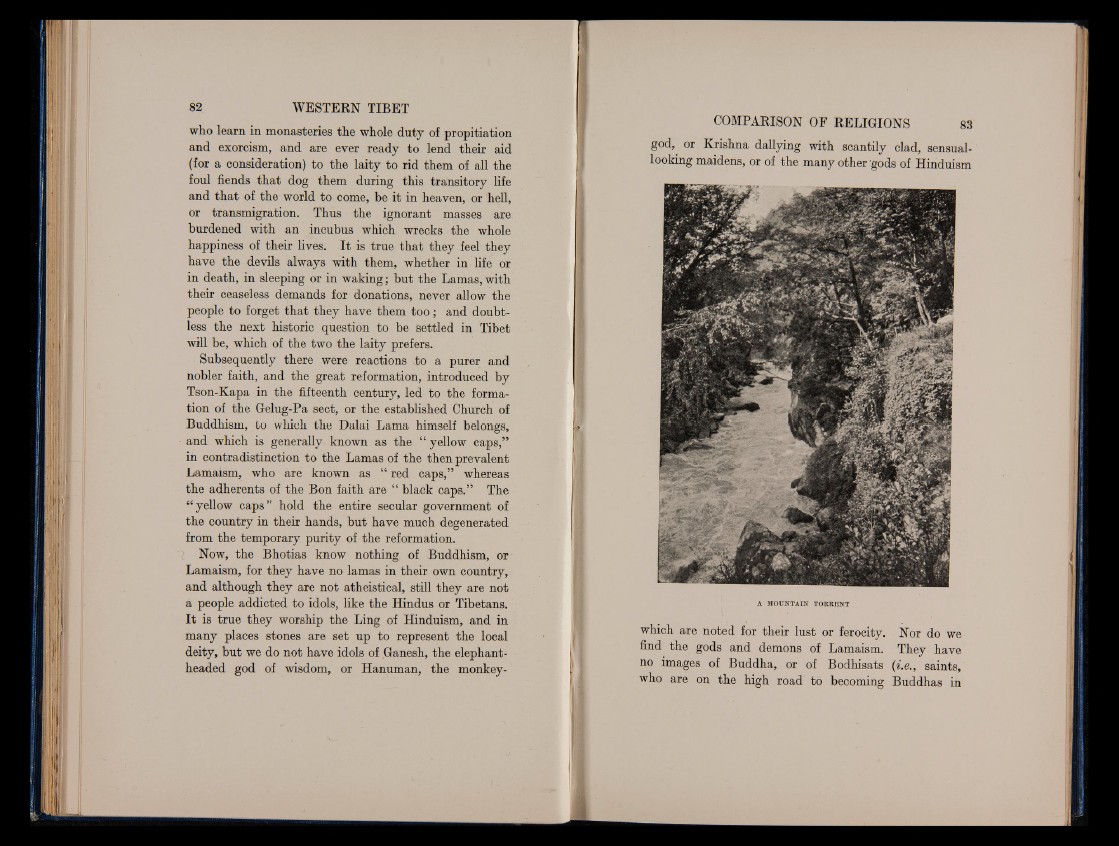
who learn in monasteries the whole duty of propitiation
and exorcism, and are ever ready to lend their aid
(for a consideration) to the laity to rid them of all the
foul fiends that dog them during this transitory life
and that of the world to come, be it in heaven, or hell,
or transmigration. Thus the ignorant masses are
burdened with an incubus which wrecks the whole
happiness of their lives. I t is true that they feel they
have the devils always with them, whether in life or
in death, in sleeping or in waking; but the Lamas, with
their ceaseless demands for donations, never allow the
people to forget that they have them to o ; and doubtless
the next historic question to be Settled in Tibet
will be, which of the two the laity prefers.
Subsequently there were reactions to a purer and
nobler faith, and the great reformation, introduced by
Tson-Kapa in the fifteenth century, led to the formation
of the Gelug-Pa sect, or the established Church of
Buddhism, to which the Dalai Lama himself belongs,
and which is generally known as the “ yellow caps,”
in contradistinction to the Lamas of the then prevalent
Lamaism, who are known as “ red caps,” whereas
the adherents of the Bon faith are “ black caps.” The
“ yellow caps” hold the entire secular government of
the country in their hands, but have much degenerated
from the temporary purity of the reformation.
Now, the Bhotias know nothing of Buddhism, or
Lamaism, for they have no lamas in their own country,
and although they are not atheistical, still they are not
a people addicted to idols, like the Hindus or Tibetans.
I t is true they worship the Ling of Hinduism, and in
many places stones are set up to represent the local
deity, but we do not have idols of Ganesh, the elephantheaded
god of wisdom, or Hanuman, the monkeygod,
or Krishna dallying with scantily clad, sensual-
looking maidens, or of the many other ’gods of Hinduism
A MOUNTAIN TORRENT
which are noted for their lust or ferocity. Nor do we
find the gods and demons of Lamaism. They have
no images of Buddha, or of Bodhisats {i.e., saints,
who are on the high road to becoming Buddhas in